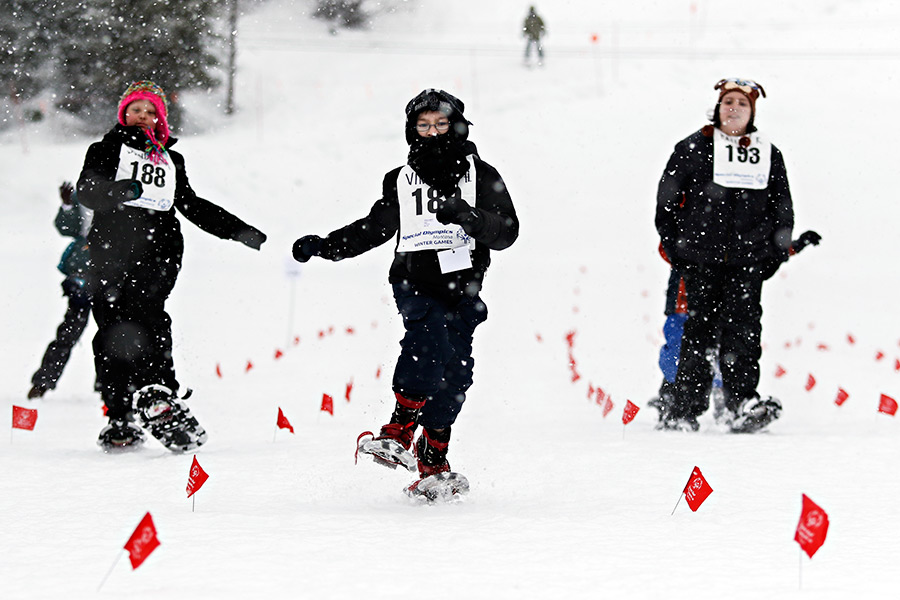Special Olympics Montana has canceled the 2018 State Winter Games in Whitefish, a move that leadership says is part of its attempt to revamp the way the organization serves athletes, coaches and volunteers across the state.
The games were scheduled to run from March 4-6 at Whitefish Mountain Resort.
According to Bob Norbie, president and CEO of Special Olympics Montana, the organization has experienced significant growth and expansion in the last decade, and now must revise the way it operates in an attempt to be more accessible to more athletes while sustaining the growth.
“It’s the growing pains of a successful organization that is trying to rethink how we do our sports model,” Norbie said in an interview with the Beacon. “It isn’t that we’re going to reduce and eliminate competitions; we are going to be rethinking them.”
Norbie said SOMT is testing out a new model, wherein instead of all athletes heading to Whitefish for the state games, there would be regional games within the state, leading to qualifiers for future state games.
And every four years, qualifiers from the state games head to the USA games, and from there, to the global games.
They’ve already tried out the model with the summer bowling program, which Norbie said has been serving athletes more cost-effectively and reducing the time and energy needed from volunteers.
There will be games in Whitefish this winter, Norbie said, except now athletes in other areas of the state will participate in their own local-area games instead of traveling across the state to Whitefish.
“We’ll have a wonderful area winter games, and those in the Flathead will have opportunity to participate,” Norbie said.
Riley Polumbus, spokesperson for Whitefish Mountain Resort, said the ski hill is still excited to be part of Special Olympics, regardless.
“We’re still happy that we’re a part of this. This is an event we look forward to every year,” Polumbus said. “We’ll be doing one day of competition, and we’ll still be doing medals.”
Usually, the Special Olympics take over the resort for a few days, but Polumbus said they expect to host for one day this winter, though the specific date is still under consideration.
“We used to host a banquet and that kind of stuff, and that’s not going to happen anymore,” she said. “It is definitely less than what we used to do.”
Norbie said fewer teams have been traveling to the state winter games in recent years because of distance and winter travel conditions, and regionalizing the games will provide more opportunities to compete for more athletes.
“As much as we like the Whitefish Mountain Resort and the community up there, we’re finding that many teams are unable to make that distant trip,” Norbie said. “We’ve had a great relationship with the Flathead community and Whitefish Mountain Resort — there’s no issues there. We’re just simply having to be good stewards of our mission.”
That will mean focusing on building the Special Olympics Montana infrastructure from the ground up via development, recruiting, training, management, and appreciation for volunteers, coaches and athletes.
Norbie said people with intellectual disabilities make up about 2 to 3 percent of the state population, translating to tens of thousands of individuals. Last year’s games attracted 2,429 athletes with intellectual disabilities, compared to 1,850 in 2011.
“This won’t eliminate opportunities for competition,” Norbie said. “(The competitions will) be different, but the athletes will have all the wonderful experiences that they’ve had in the past as we apply them to area games.”
Special Olympics Montana also plans to maintain its equestrian competition as part of the Summer State Games instead of moving it to a standalone event; explore the option of regional basketball tournaments as a feeder to a state tournament; establish a partnership with the Montana High School Association to promote sanctioned events; create a focus on organizing and managing coaching education, state summer games, the USA games, regional bowling tournaments, and the state basketball tournament; and remain focused on building the Unified Champion Schools program.
